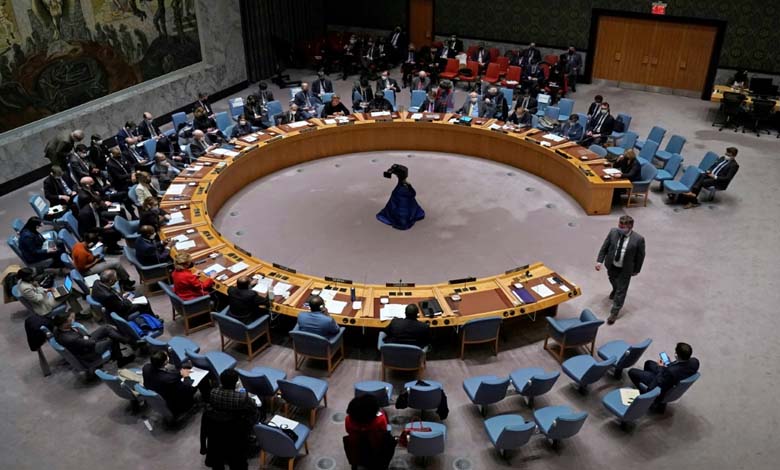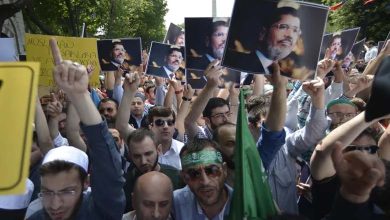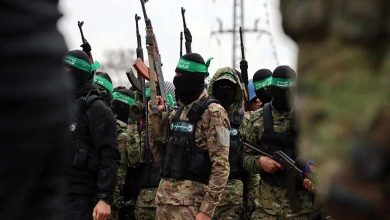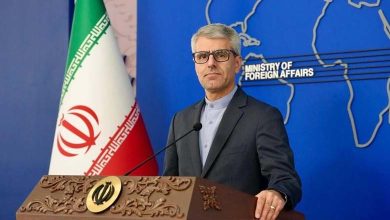The Human Rights Council Calls for an End to Arms Exports to Israel
The resolution of the Human Rights Council does not mention the Hamas movement but condemns the firing of rockets at civilian areas in Israel

The United Nations Human Rights Council on Friday called for an end to any arms sales to Israel in light of the war in Gaza, in a resolution warning of the dangers of “genocide” against Palestinians, a formulation that sparks sharp debate.
This is the first stance taken by the Human Rights Council on the ongoing conflict since October 7th, when Hamas launched an unprecedented attack in southern Israel.
Although the tone of the text is extremely severe towards Israel, the Council does not have binding means to enforce the implementation of its resolutions.
The Permanent Representative of Palestine to the United Nations, Mohammed Khraishi, declared before the vote, “You must all wake up and put an end to this genocide,” noting that the allotted time for his speech would not be enough to list all the atrocities happening in the Gaza Strip.
On her part, Israel’s Ambassador to the United Nations, Merav Shahar, stated that “the affirmative vote is a vote in favor of Hamas. A vote to legitimize and encourage Palestinian terrorism. A vote to undermine Israel’s right to self-defense.”
South Africa, which actively advocates for the International Criminal Court to recognize genocide against the Palestinian people, denounced double standards.
Its ambassador, Mxolisi Nkosi, said, “We can no longer choose to apply a parallel system of international law in Israel, nor be complicit in facilitating its actions.”
Twenty-eight out of the 47 Council members voted in favor of the resolution, while six voted against it, including the United States and Germany, while 13 countries abstained, including France, India, and Japan.
France’s Ambassador to the United Nations, Jérôme Bonnafont, explained that his country abstained from voting because the mention of genocide could not be “included in a text the size of a resolution of this Council without it being validated by a judicial authority empowered to do so.”
The U.S. Ambassador, Michelle Taylor, made unprecedented criticisms of the Israeli state, stating that “Israel has not made sufficient efforts to mitigate harm to civilians,” but ultimately voted against the text due to “numerous problematic elements,” including the lack of clear condemnation of Hamas.
The resolution calls on “all states to cease the sale, transfer, and provision of arms, ammunition, and other military equipment to Israel … to prevent further violations of international humanitarian law and human rights abuses.”
It condemns “Israel’s use of explosive weapons with wide-area effects in populated areas of Gaza” and the use of artificial intelligence “to assist in military decision-making processes that may contribute to international crimes.”
The reference to genocide was removed from several paragraphs of the text, but it is still mentioned therein as it expresses “deep concern about information indicating severe human rights violations, including possible war crimes and crimes against humanity,” and about “the determination of the International Court of Justice that there is a reasonable risk of genocide.”
The war broke out on October 7th, following an attack by Hamas in southern Israel that killed 1,170 people, mostly civilians, according to a count by Agence France-Presse based on Israeli official figures.
Israel has pledged to “end” Hamas and has since carried out intensive bombings, launching a ground offensive on October 27th, resulting in 33,091 deaths, mostly women and children, according to the Hamas Health Ministry.
The resolution calls on Israel to “end its occupation” of Palestinian territories, including East Jerusalem since 1967, and to “immediately lift its siege and all other forms of collective punishment on the Gaza Strip.”
The United Nations Security Council adopted a resolution last week in New York calling for a ceasefire in Gaza, thanks to the abstention of the United States, Israel’s closest allies, but the text has had no effect on the ground so far. The resolution of the Human Rights Council does not mention the Hamas movement but condemns the firing of rockets at civilian areas in Israel.












